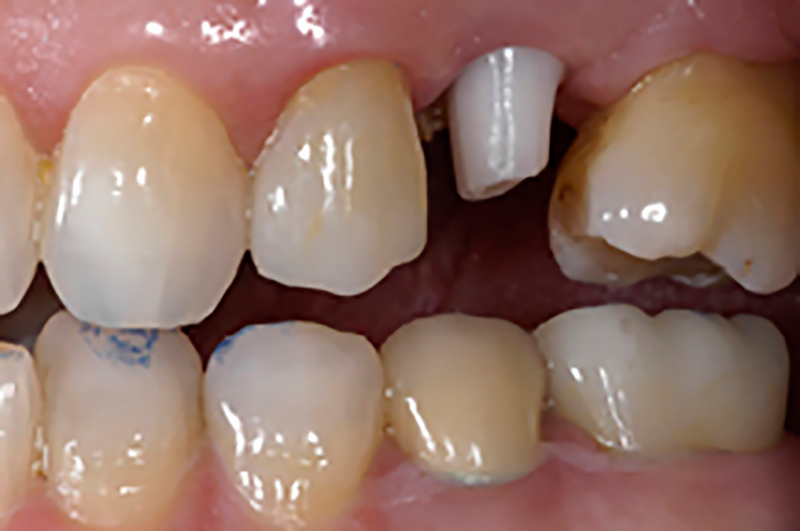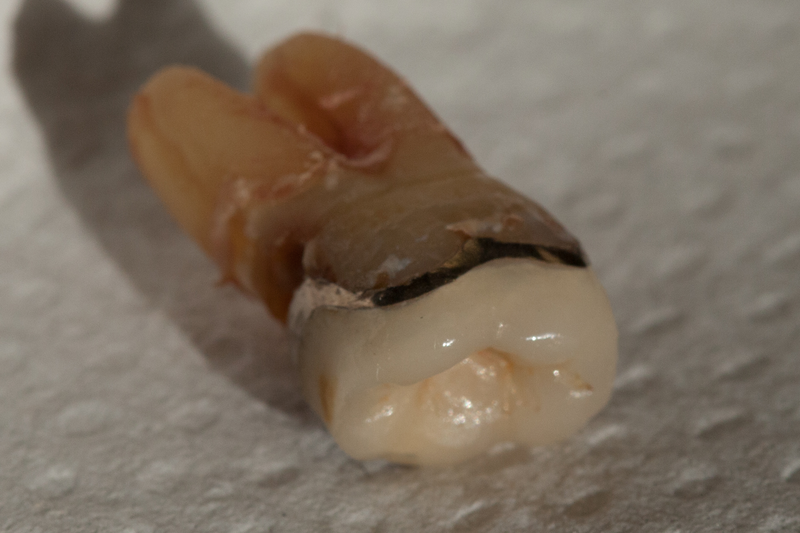What's a Dental Crown?

You think of a crown as something your wear on your head. So, when your dentist suggests that you need one on your tooth, it’s understandable that you’re a little bit confused.
Crowns are a dental treatment option for several situations that can help save and protect a natural tooth. Here’s everything else you need to know before you get one.
What Are Dental Crowns?
A dental crown is a cap that's shaped like a tooth and goes over your natural tooth. It's used when you have severe tooth decay that a filling can't fix or an injury that damages the tooth. The crown can help strengthen the tooth or improve its appearance, shape and size. Dental crowns are cemented onto the remaining portion of your natural tooth to cover it completely.
You could need a dental crown to correct a variety of dental conditions or situations, including:
- Protecting your tooth after a root canal
- Protecting a weakened tooth due to severe decay, breakage or cracking
- Correcting a tooth that's misshapen or small
- Restoration from severe erosion
- Securing a dental bridge
- Covering dental implants

What Does the Process Look Like?
You'll typically need at least two visits to complete the dental crown process. During the first visit, your doctor takes X-rays and evaluates the extent of the damage. If the pulp is damaged or infected, you'll likely need a root canal first.
The crown process typically looks like this:
- The dentist reshapes the tooth, taking off some of the sides and chewing surface to accommodate the crown.
- If there's lots of decay or damage, your dentist might need to do the opposite, building up the tooth with filling material, so the crown will have enough support.
- Your dentist will make an impression with putty or use a digital scanner.
- You'll have a temporary acrylic crown placed over the tooth to protect it until you get the permanent crown.
- A dental lab makes the crown to fit your tooth precisely based on the impression.
- At your next appointment, the dentist checks the fit of the dental crown.
- They apply a local anesthetic and cement the crown to your tooth.
More Related Articles:
- How Often Should You Go to the Dentist?
- Do Dentists Offer Payment Plans?
- Everything You Need to Know About Emergency Dentists
- How Much Does a Dental Cleaning Cost?
- How Much Do Dentures Cost?
What Are Crowns Made Of?
Dental crowns can be made of several materials, including metal, resin, porcelain and ceramic. The pros and cons of these materials include:
- Metal: This highly durable option usually lasts the longest and doesn't typically crack or break, but many people prefer a natural tooth color, instead of the metallic color of this material option.
- Resin: Crowns made of resin are usually the most affordable option, but they have a higher chance of breaking and often wear down faster than other materials.
- Porcelain: You can get all-porcelain crowns or porcelain that's fused to a metal crown. All-porcelain options are easier to match to the natural color of your teeth, but they aren't as sturdy as porcelain that goes over metal. The metal version holds up better, but the porcelain coating can chip off, and you can sometimes see a darker shade where the metal shows through.
- Ceramic: All-ceramic crowns are similar to all-porcelain crowns, offering a good color match but not as much durability. Pressed ceramic features a hard core with a porcelain cap, making it a long-lasting option that matches your natural tooth color well.
What Are the Alternatives to Dental Crowns?
Onlays and three-quarter crowns are alternatives to traditional crowns. They cover only a portion of your tooth and can offer a conservative dental treatment option if you still have a solid tooth structure intact. If the tooth is in the front of your mouth, dental veneers may be an option. They're thin shells that cover teeth and can work well for chipped or cracked teeth. You might also choose a tooth extraction with a dental implant or bridge to fill the gap.
How Long Do Dental Crowns Last?
You can expect a dental crown to last between five and 15 years, depending on the material and how well you take care of your teeth. Brushing and flossing regularly helps to maintain all your teeth and your crown. You can also help by avoiding clenching your teeth, biting your nails, chewing on anything other than food and using your teeth to open things.
Elocal Editorial Content is for educational and entertainment purposes only. The information provided on this site is not medical advice. Editorial Content is not intended to be used for diagnosis or treatment. We are not physicians or a substitute for advice from a physician. The opinions, beliefs and viewpoints expressed by the eLocal Editorial Team and other third-party content providers do not necessarily reflect the opinions, beliefs and viewpoints of eLocal or its affiliate companies. Use of the Blog is subject to the
Website Terms and Conditions.The eLocal Editorial Team operates independently of eLocal USA's marketing and sales decisions.



